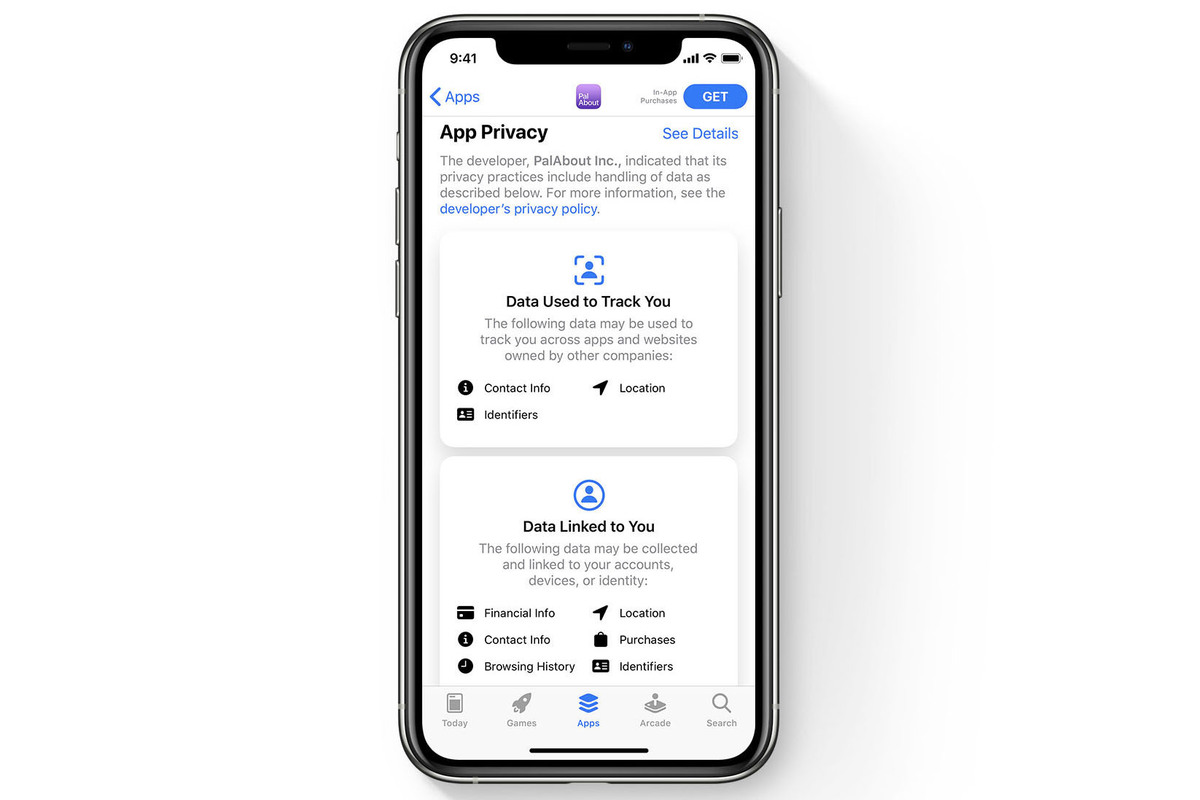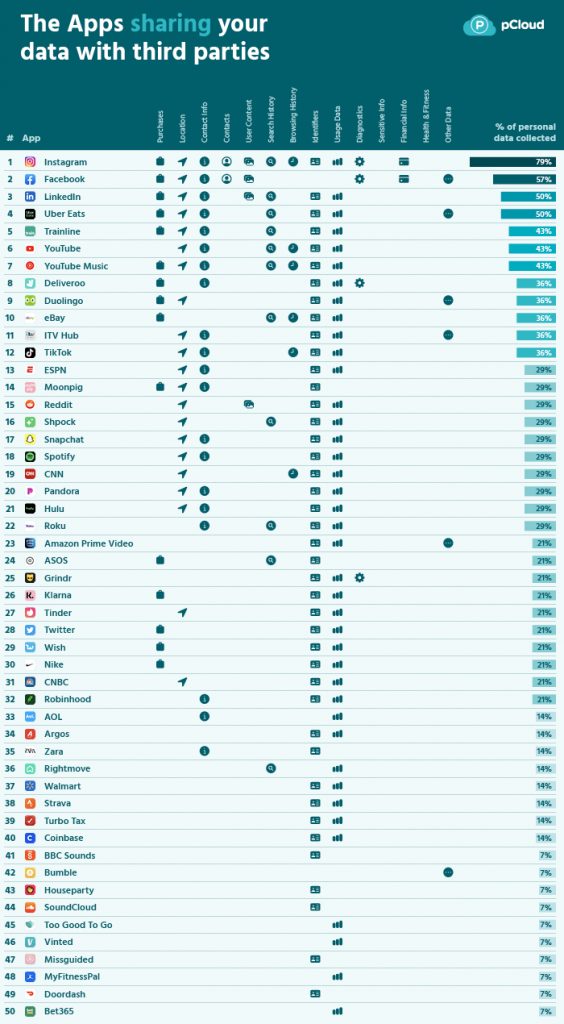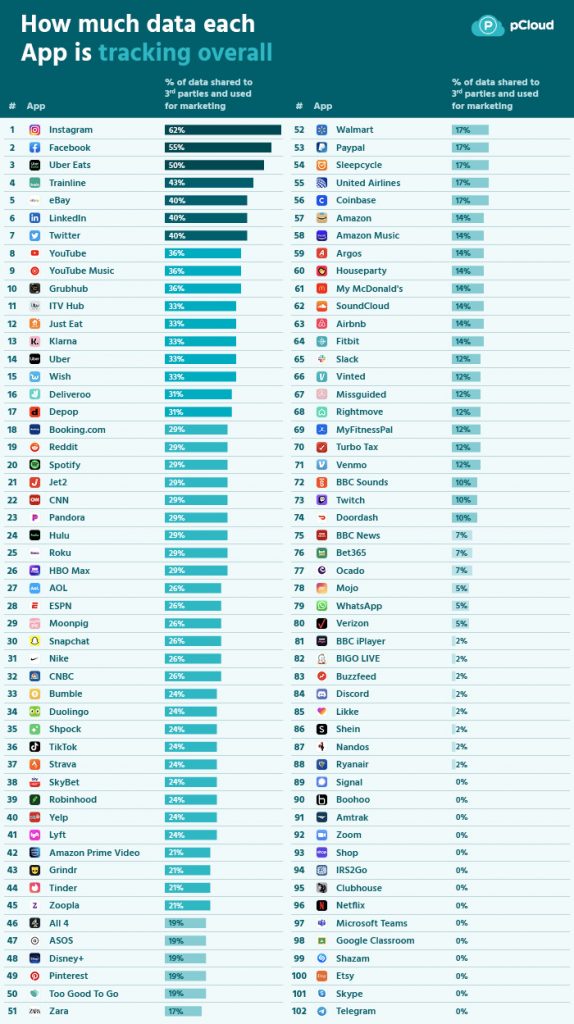Earlier this month pCloud Blog took a look at the most invasive apps that collect users’ data. The study found that Facebook and Instagram apps top the list of invasive platforms. The pCloud Blog posts company news, useful tutorials, and commentaries on encryption, cloud storage, and online security.
Apple launched its App Privacy labels back in December 2020. These labels were introduced by the company as a way to keep users better informed about the privacy practices of individual applications. Since App Privacy labels are aimed at making sure users are aware of the data being collected from them, many companies have spoken out against the feature since it was announced.

pCloud takes a look at the most invasive apps collecting data from users
When signing in to a new app, any information that you agree to share can be used and distributed by the platform to third-party advertisers. The report explains that,
Any information you agree to be gathered by an app when signing up can be analysed for their benefit and even shared. You agree to this by accepting the app’s terms and conditions. While this data is willingly passed on, you might be interested to know exactly what it is apps are after.
Everything from your browsing history, to your location, your banking details, your contact details, and your fitness levels can be valuable for apps to store, use, or sell on. While they all have a responsibility to keep this data safe, that doesn’t always mean it stays in their hands.
According to the research by pCloud, the most invasive apps are Facebook and Instagram. Both the apps collect information on location, contact details, search history, browsing history, purchases, and share most of the data with third-party advertisers. Facebook collects 57% of user data, while Instagram harvests 79% of personal data.

LinkedIn, YouTube, YouTube Music, and eBay can be seen as the topmost invasive apps which share data with third parties. YouTube, and YouTube Music both collect 43% of personal data, while eBay collects 36% of personal data. When a user searches for a video on YouTube, almost 42% of their personal data is sent elsewhere. The adverts before and after the video, are based on the data shared with third-party advertisers. Snapchat and Spotify can be found at ranking 17 and 18 respectively, collecting 29% of personal data.

The other end of the list includes apps that do not collect much data from its users, like Netflix, Shazam, Skype, Telegram, Etsy, Signal, and SoundCloud. Apps that collect data from users often use it to market their own products, share the data across apps and websites, targeting purposes. The prime examples are at the top of the list, Facebook and Instagram.
Apple is expected to roll out the App Tracking Transparency feature in the coming weeks with the launch of iOS 14.5. With the update, in order to access a user’s data, the developers will be required to ask for permission. This might decrease the chances of personal data being shared with third-party advertisers.
Read More:
4 comments